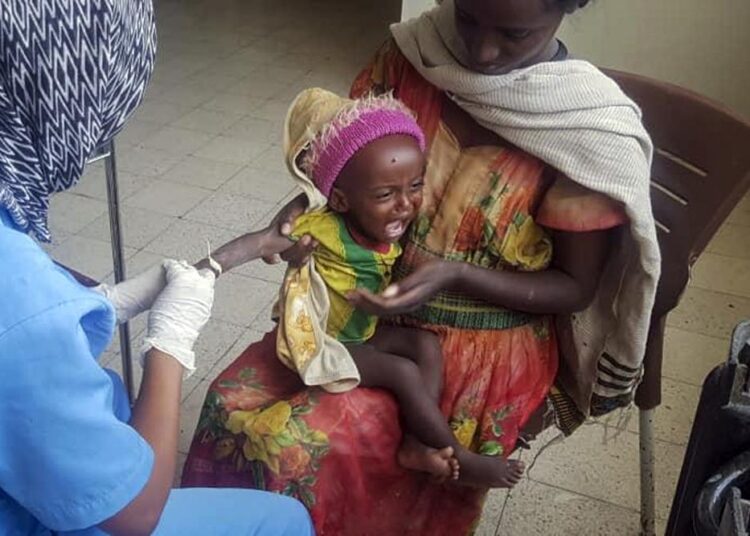NAIROBI, Kenya — Babies in Ethiopia’s embattled Tigray region are dying in their first month of life at four times the rate before the war cut off access to most medical care for over 5 million people, according to the most sweeping study yet of how mothers and children are suffering.
Women are dying during pregnancy or within 42 days of giving birth at five times the rate before the war, and children under 5 are dying at twice the pre-war rate, often because of easily preventable reasons, according to the yet-unpublished study shared by its authors with AP.
Almost two years have passed since the war started and Ethiopia’s government isolated the Tigray region from the rest of the world, severing basic services such as electricity, phone, internet and banking.
While United Nations-backed investigators last month said all sides including the Tigray forces have committed abuses, they said the Ethiopian government is using “starvation of civilians” as a weapon of war.
Both sides have been invited to African Union-mediated peace talks this weekend in South Africa.
A lull in the war earlier this year allowed thousands of trucks of humanitarian aid into Tigray, but renewed fighting in August has again stopped deliveries to a region where critical medical supplies like insulin and childhood vaccines have run out. There is an “extreme shortage” of medicines and equipment, the UN-backed investigators found.
Pregnant women and young children, least to blame for the fighting, are among the most vulnerable. The new study was conducted in May and June by local health authorities with financial support from two UN agencies and studied more than 189,000 households in six of the region’s seven zones via cluster sampling. With limited fuel for transport, researchers at times walked for hours to reach rural areas.
Maternal mortality was at 840 deaths per 100,000 live births, up from a low of 186 before the war, with obstetric hemorrhage and hypertension the most common causes. “This level is unacceptably high and is comparable to the level which was 22 years back,” the study says.
More than 80 per cent of mothers died outside a health facility, another stark contrast, the study says. More than 90 per cent of mothers in Tigray before the war had prenatal care and more than 70 per cent benefited from skilled delivery, according to an analysis published in the BMJ Global Health journal last year.
The increase in maternal mortality in Tigray has been “phenomenal,” the UN Population Fund said this year.
Neonatal mortality, or children dying in the first 28 days of life, was at 36 in 1,000 live births, the new study says. That’s a four-fold increase from pre-war levels, and more than half of the deaths occurred at home without medical intervention. The most common causes were prematurity, infections and perinatal asphyxia, or the inability to establish breathing at birth.
Under-5 mortality was 59 in 1,000 live births, double the rate before the war. “Vaccine-preventable diseases like diarrheal disease, pneumonia and pertussis account for the majority of causes,” the study says.






Discussion about this post